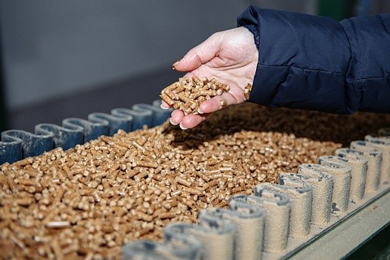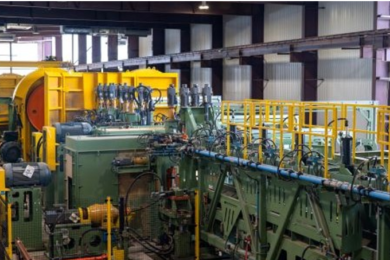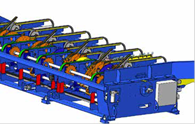Segezha Group PJSC (‘Segezha Group’ or the ‘Company’, MOEX: SGZH), a Sistema company and one of Russia’s leading vertically integrated timber holding companies with a full cycle of logging and deep wood processing, has reported increased pellet production and export to EU countries.
In the first half of 2021, KsyloTech-Siberia, the Company’s pellet asset in Krasnoyarsk Krai at the Lesosibirsk Sawmills and Woodworking Plant (LLDK No. 1), produced 43,400 tons of pellets, a 17% year-on-year increase. Between January and June 2021, 40,200 tons of pellets were shipped to Sweden, Denmark, the Netherlands, the UK and France from the port of St. Petersburg. In comparison, in 1H 2020, the total volume shipped amounted to 36,400 tons. Pellets are exported in 20-foot-long containers and transported to New Port station (St. Petersburg) by container trains holding a minimum of 114 containers each (an average of three-four trains per month). From there, they are transported to ships en route to destination countries.
“Denmark, the UK and the Netherlands remain our core long-term consumers in Europe. There is also a demand for Siberian biofuel in France, Ireland, Sweden and Finland. In 2020, EU pellet exports amounted to almost 90,000 tons, and in 2021, we plan to further increase this volume”, said Julia Shevlyakova, Sales Director at LLDK No. 1.
The Lesosibirsk plant uses sawdust and fine chips, the by-products of coniferous sawn timber production, as raw material to produce pellets. Product quality complies with the rigorous SBP and ENPlus A1 European standards. Driven by the increase in biofuel orders and enabled by a third processing line commissioned in 2020, KsyloTech-Siberia has increased its production output from 70,000 to 110,500 tons. In 2023 the Company plans to build a second pellet plant with a 100,000-tonne capacity. With the opening of yet another pellet production unit, the Company will boost its product portfolio margins and increase environmentally friendly outputs.
Biofuel is an important focus of Segezha Group’s environmental policy. Fuel pellets are produced under high pressure without the use of chemical binding agents. Pellets are a green renewable energy source. Their heating efficiency is comparable to that of hard coal. At the same time, pellets emit less sulfide when combusted. Boiler conversion to biofuel facilitates reduced GHG emissions and improves environmental conditions.




